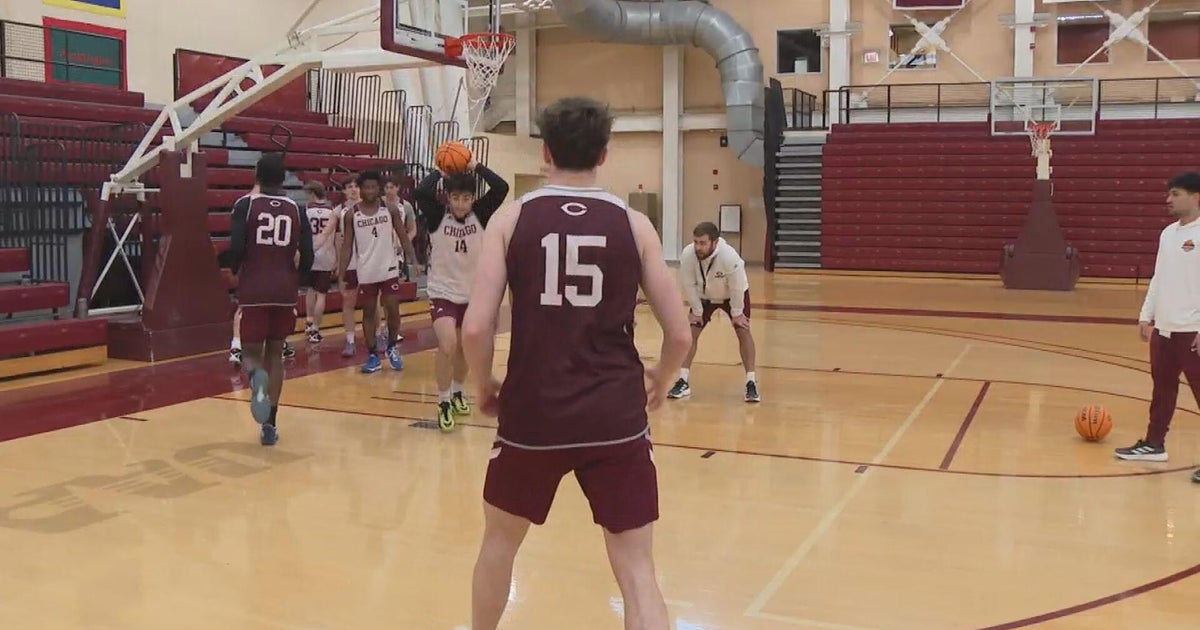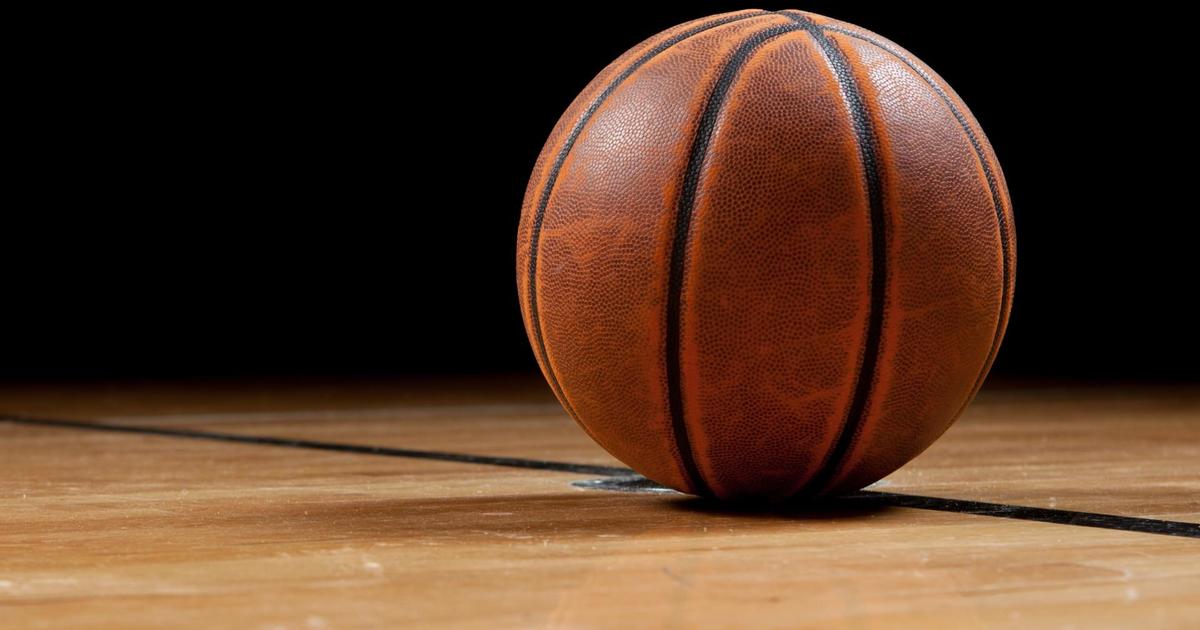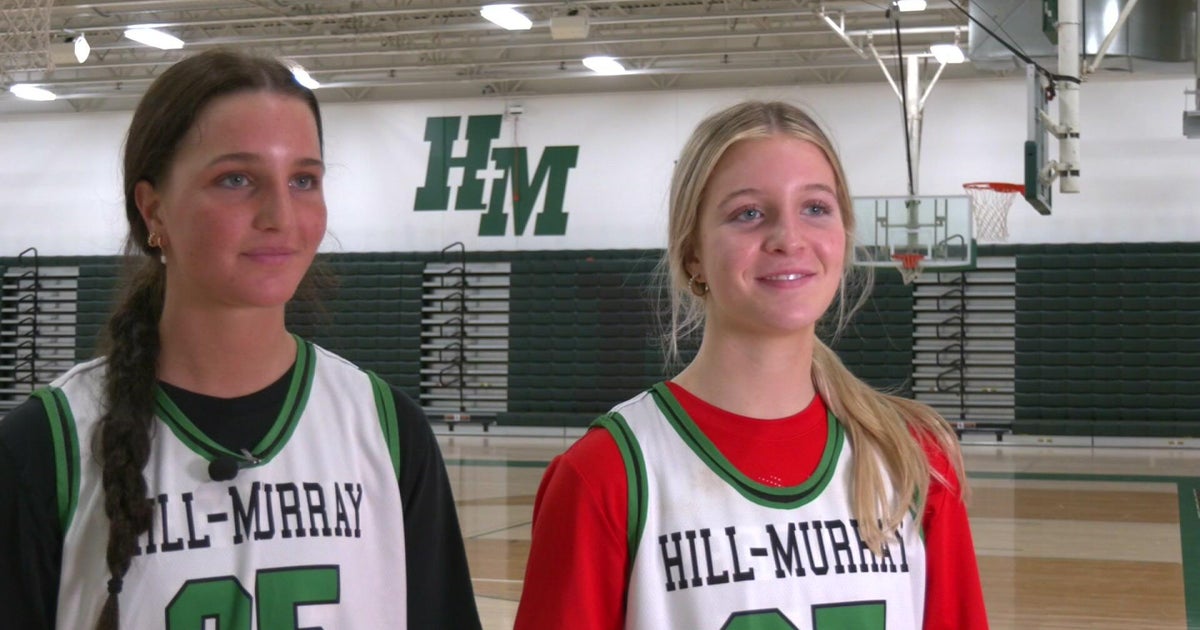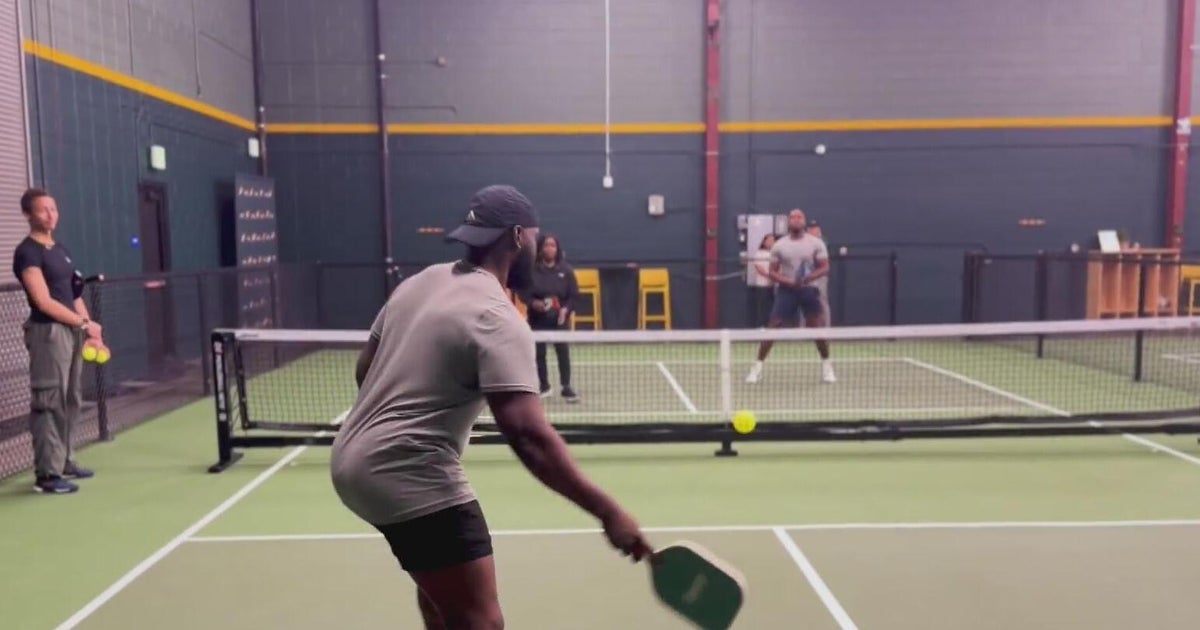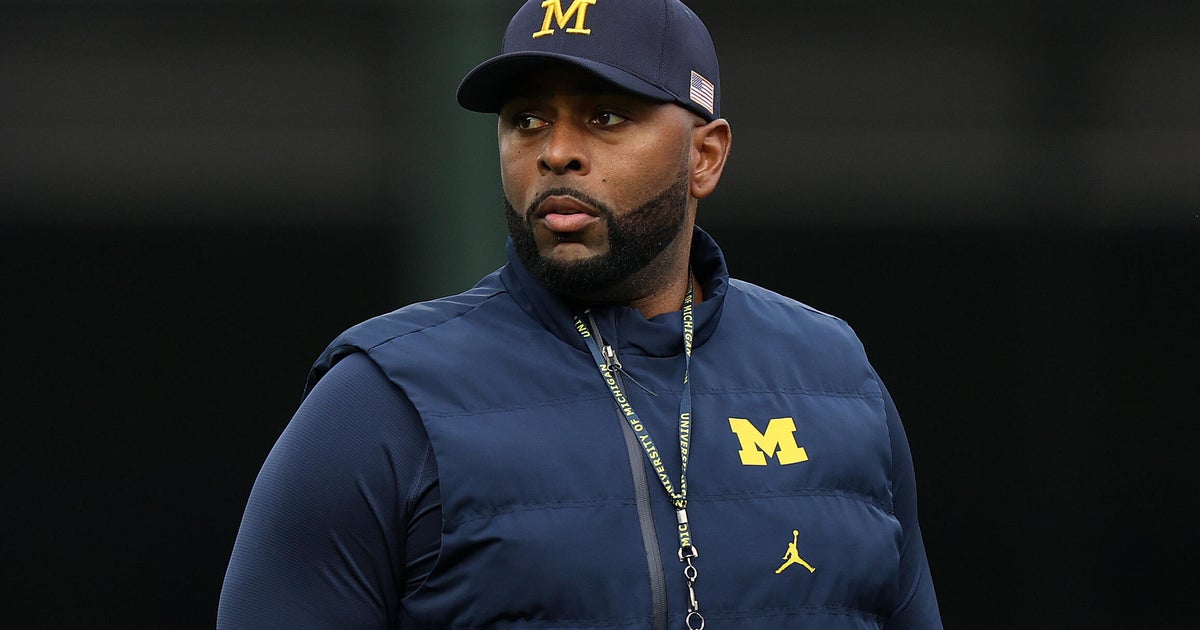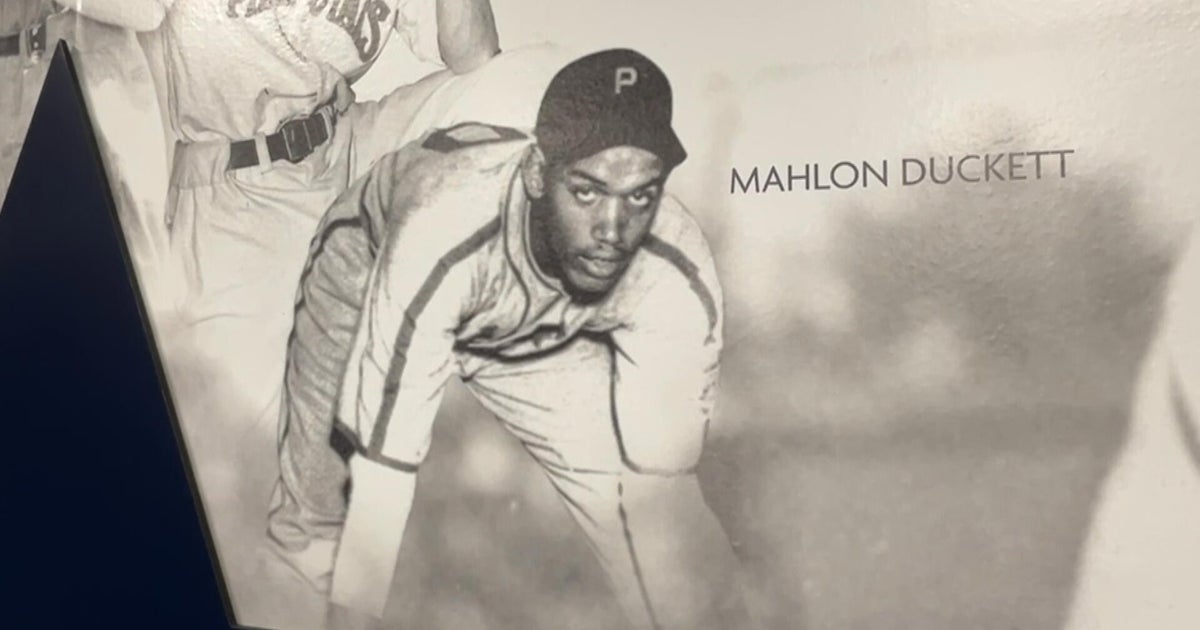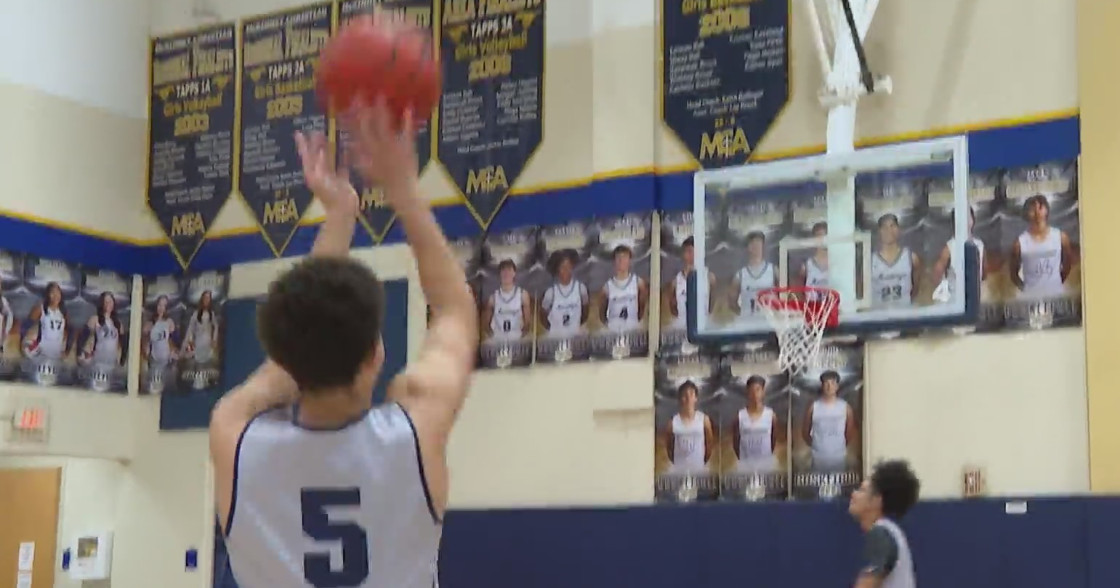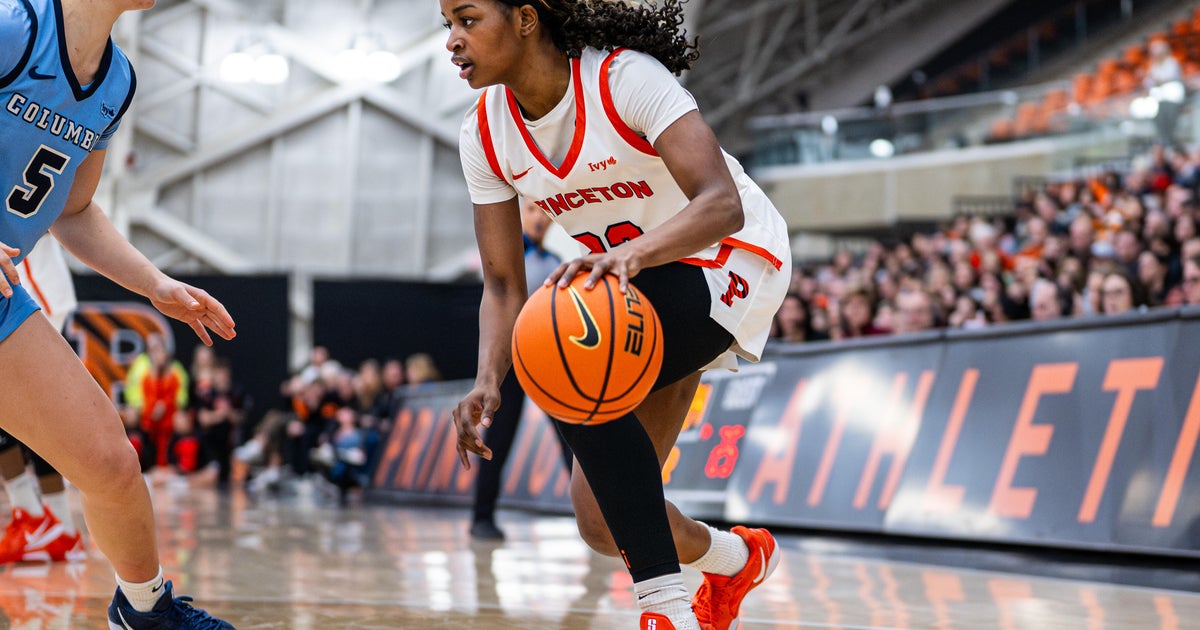The March: How Northwestern Finally Made History
By Chris Emma--
EVANSTON (CBS) -- For all the stonecutters who have swung tirelessly away at infamy, a common dream was shared, and one day their work would prevail.
The words of Jacob Riis, a muckraking journalist from the 19th century, serve as the foundation on which Chris Collins built this Northwestern basketball program from his first days as head coach. He arrived with the utmost respect for the swings of those before him. Collins wanted to be the one who finally shattered it.
Before this once-lofty dream became a reality and the Wildcats finally got their chance to dance, Collins had a slogan -- a reminder of the callous past and a goal to be finally attained: Pound The Rock.
After 78 years of waiting, this day had to come. Sixty-eight teams make the NCAA Tournament every March, and Northwestern remained the only high-major program never to have its name called. In fact, the Wildcats had never even been on the bubble for a Selection Sunday. The closest Northwestern has ever gotten to the tournament was with the mention in Northwestern Mutual commercials.
On Sunday, tension filled Welsh-Ryan Arena once more as the CBS selection show held out until the final region. Collins and his Wildcats were left shaking their heads in bemusement, waiting and wondering when it would come. The building was at a hush when the moment finally arrived. Northwestern is in, an 8-seed in the West region set to face off with Vanderbilt in Salt Lake City.
The Wildcats jumped from their seats in a scene of mayhem. They had prepared for this moment, but one can never truly imagine the feeling when it finally could become a reality. Up and down they went, alternating between hugs and looking to the video screen to confirm this had actually happened.
Forward Vic Law flung into the air as if he was chasing a rebound, soon to be mobbed by teammates. Jim Phillips, the athletic director of nearly a decade, threw his arms into the air as he joined his family in a celebration. Then there was Collins, who was instantly grabbed by point guard Bryant McIntosh as they basked in the moment they dreamed of.
Finally, the work not only of this special team but so many before them, too, had finally shattered the past.
"I've always wondered what history looks like," Phillips said. "Now I know."
---
It was an early summer morning in 2014, the kind of quiet day that draws people to the north shore, and Northwestern had dispatched its athletic department across Evanston for an annual community day.
Then months removed from his first season at Northwestern, Collins was sent to Dewey Elementary School in Evanston to run recess. He seemed right at home.
Kindergarteners were first to emerge on the open field to the side of the school, and Collins kicked them soccer balls back and forth. Then came the second-graders, and he threw footballs for a game of "500," which predictably brought chaos.
But it was when the third-graders came to the field later in the morning that he grew especially excited. The teachers told him to bring the children to the basketball court behind the school and lead a game of "Knockout." Quickly, he rounded up a group and led them back.
Collins had the group single-file behind the free-throw line, guiding the game along. Then he jumped to the back, and his first shot went up. Nothing but net. Soon enough, the line shrank to just the former Duke star Collins and a Dewey third-grader. Collins was firing jump shots, swish after swish. He wasn't going to lose.
Collins grew up dunking on miniature hoops with Kobe Bryant in Philadelphia, as his father, Doug, and Kobe's father "Jellybean," were 76ers teammates. He came up as a teenager with Michael Jordan and the Bulls, with Doug serving as the head coach and Chris the ball boy. In high school, Collins led Glenbrook North to a sectional championship and was named Illinois Mr. Basketball as a senior in 1992. He went on to Duke and went to a Final Four as a player, then won two championships as Mike Krzyzewski's trusted assistant.
Collins was born and raised with greatness, driven to write his own chapter.
It was that competitive thirst that led him to Northwestern in March 2013. There were other important factors, too, like being back home to raise his young children. Ultimately, a great challenge was what Collins so desired.
He was to inherit a program steeped in infamy. There would be recruiting challenges in fighting through a tough Chicago landscape with recruiting restrictions. Welsh-Ryan Arena has a distinct charm to a basketball purist like Collins but not for a 17-year-old with a dozen major offers.
Many had taken the helm at Northwestern with lofty aspirations. None could reach the NCAA Tournament. The challenges that scared most away from Northwestern were what drew Collins in.
"This situation at Northwestern, with what we're trying to build — trying to take another step to get to a level of success that's never happened in the program — to me, that's exciting," Collins said that June day in 2014 at Dewey.
"To some, it might be scary or daunting. To me, it's exciting. It's something I'm passionate about."
Despite his youth and lack of head-coaching experience, Collins was the first choice for athletic director Jim Phillips after he dismissed Bill Carmody and ended the program's most successful tenure ever. Northwestern had reached the NIT four times, accomplishments that were once displayed with a banner. The banner was met with apathy when Collins arrived, as they were quickly removed.
Phillips got his guy, the charismatic Krzyzewski disciple whose basketball upbringing was unparalleled. Collins was granted the university's investment and the best efforts of Phillips, but the task he faced would be tall.
A challenge is just what Collins was seeking. His competitive fire was burning.
---
There was more to Bryant McIntosh than what met the eye.
He was 6-foot-4 and barely 170 pounds soaking wet, an aggressive shooter from a small town in Indiana, and he just bet on himself by breaking his commitment from Indiana State and opening his recruitment all over again.
Many couldn't look past the surface when it came to McIntosh. Indiana coach Tom Crean hardly considered him for a scholarship offer. Purdue coach Matt Painter was willing to offer but didn't make McIntosh a priority.
Collins was instantly enamored. Then a rookie head coach with a grand vision, he traveled to Indianapolis in July 2013 for a key recruiting period and saw what McIntosh could become for Northwestern. More than his smooth shooting stroke, Collins was drawn to McIntosh's drive. He could see this kid was just as competitive as himself. When Collins entered the picture, he was blunt as can be. His sales pitch to McIntosh was the vision he hoped to share.
Collins' first recruit was the biggest Northwestern had gotten in decades, four-star forward Vic Law. Collins had gone into the Chicago basketball scene and scored a major prospect, one recruited by most of the Big Ten. That was the start.
Winning over McIntosh was next for Collins. He recalls asking for the faith of the point guard. McIntosh remembers it differently.
"It wasn't a desperation of 'Believe in me,'" McIntosh said recently. "He had this confidence in him that allowed me to believe in him.
"There's no true legacy around here. There's no jerseys hanging around here. Certainly, there's been great players. But there's a chance to leave your own mark and build something that's not around.
"You look at a lot of other places that were recruiting me, they already had that. I'd just be another player. I thought, here, I could give myself an opportunity to be really special."
While watching McIntosh run through the AAU circuit, his talents were clear to Collins. So was his heart, which instantly resonated as they built a relationship. And Collins soon discovered how like-minded they were when it came to basketball.
McIntosh led little Greensburg High School to an unbeaten season as a sophomore and Indiana state titles as a junior and senior. Like Collins, he experienced great success but was ready for a new challenge.
After walking through Indiana's Assembly Hall and seeing those five banners, then strolling through Mackey Arena to see the names of Joe Barry Carroll, Rick Mount and Glenn Robinson, McIntosh entered Welsh-Ryan Arena and saw not the infamy attached to the program but instead the potential of what it could become.
McIntosh and Law joined Scottie Lindsey and Gavin Skelly to form Collins' first recruiting class at Northwestern -- a foursome that would bring the Wildcats to the brink of history.
"I'm indebted to those first four guys that jumped on," Collins said. "That first class with McIntosh, Law, Lindsey, Skelly, really, all they were hanging on to was a vision, a dream. There were no banners in here. There was nothing to hang our hat on with tradition. I was a rookie coach; I had never even coached a game.
"Those guys took a big leap of faith to come here, with really nothing to hang on aside from 'I just believe in what Coach Collins is selling and his vision and what he wants. I want to be a part of that.' I'm so happy those guys are at the forefront of what's going on here because they deserve it for their loyalty and their faith in me."
---
Mere months before Collins first set foot on Northwestern's campus as a high school senior vying for a state championship, the Wildcats had hired a new football coach. He was Gary Barnett, a young assistant who was part of a national title at Colorado.
Barnett came to a dormant Northwestern program just crazy enough to think the Wildcats could be something more than abysmal. He often spoke of belief without evidence, which can best be defined as faith. In his fourth season, Barnett took Northwestern to the Rose Bowl and brought the Wildcats out of the darkness to the brightest stage in college football.
Growing up in Joliet, Tavaras Hardy watched as the Wildcats made their historic run to the Rose Bowl. He witnessed something historic and believed the basketball program could make its own history and finally reach the NCAA Tournament.
Hardy committed to Northwestern in the late 1990s and became a star for the Wildcats. His tournament dream went unfulfilled as a player, but he joined Carmody's staff in 2007 to pursue that dream as an assistant coach. Hardy was an excellent recruiter, a key reason for why the Wildcats found success.
"I'm proud of what we did, what we were able to accomplish taking it from one point to another point and bringing it to the brink," Hardy said recently.
Hardy is believed to be the first Northwestern player to ever each the NCAA Tournament stage -- doing so as an assistant with Georgetown in 2015. It wasn't the fate he had hoped for.
Prior to Northwestern's contest with Illinois in early February, Phillips stood next to a large poster with images of the school's elaborate new facilities. Welsh-Ryan Arena is set for dramatic renovations in 2018, and this day brought the unveiling of the $20-million investment of the Trienens Performance Center, a state-of-the-art new home for the basketball program.
Without Phillips, Northwestern's athletic department would be what it once was. His tireless devotion to progress has driven the Wildcats to new heights in all fields. Investing in Collins and football coach Pat Fitzgerald allowed Northwestern to grow in its most important sports, and Phillips' impact has been monumental in attaining the funds to finally upgrade the athletic facilities. A picturesque building is coming for football, constructed along the lake. Now, his finest work is coming for the basketball program.
Phillips was eager to see the next step in Northwestern's journey toward the NCAA Tournament, an important game with Illinois. But he couldn't help but to reflect back on what could've been before Collins.
"I would tell you that maybe some of the past failures or we haven't achieved what we wanted to shouldn't be placed on the coach or a group of student-athletes," Phillips said. "I think part of that is my responsibility. Part of that is I probably let a previous staff down because we weren't able to get some of these things."
Carmody was hired in 2000 after twice taking Princeton to the NCAA Tournament. He brought Princeton to Evanston, with a system built on ball movement and constant motion. Its quick cuts and picks created an offense that could out-scheme a greater, more talented foe.
Carmody fit perfectly with Northwestern. He carried himself with grace as head coach, never once complaining as time seemed to stand still around his program. The arrival of Phillips and president Morton Schapiro meant investments were finally coming for the basketball program.
Before Collins, Carmody was the only coach who had brought Northwestern to the brink of tournament history. That was in 2012, when the Wildcats were on the bubble for a time but couldn't get enough quality wins to strengthen their case. They weren't in consideration come Selection Sunday. Northwestern instead went to its fourth straight NIT.
Carmody was fired one season later after an injury-riddled 13-19 campaign, ultimately a victim of the new standard he set. Northwestern would put its faith and added resources behind Collins in hopes of finally making history.
---
Northwestern's basketball offices are housed inside the fieldhouse within McGaw Hall, an open gym behind the north bleachers of Welsh-Ryan Arena that has a two-story structure behind a baseline.
Collins had settled into the head coach's office, which overlooks the fieldhouse floor, when a book had arrived on his desk. It was entitled "High Hopes: Taking the Purple to Pasadena," Barnett's tale of making Northwestern football history.
Like Barnett, Collins began to view Northwestern with that belief without evidence. He imagined Welsh-Ryan Arena as loud and crowded as his last game in high school when he first walked into the building. The Wildcats have never owned a true home-court advantage. He wanted to change that.
Collins dreamed of nights like those of February, when the old building was packed with purple. Finally, it wasn't a neutral-site game in Evanston, with Illini orange filling the building. Illinois' struggles were part of the reason, but this was Northwestern's night.
But the arena went dead silent when Illinois rode a 17-4 run late in the first half. With one minute remaining, Northwestern trailed by four and Law shot an airball. Suddenly, faint chants were heard from the upper seating: I-L-L! I-N-I!
The Wildcats left the floor hanging their heads after a 68-61 loss to the Illini. Worse than the defeat was they realized the challenge of playing without Lindsey, their leading scorer stricken with an illness. Doubt had began to creep in -- the fears of a great collapse only Northwestern could accomplish.
Two years ago, McIntosh was a freshman leading Collins' second Northwestern team. He was thrust into the role as starting point guard and asked to be the leader.
Late that January, McIntosh had his heart dropped to the locker room floor at Michigan's Crisler Center. He had just missed the tying shot to force overtime and was crushed. The Wildcats had lost a week before in East Lansing after Denzel Valentine sank two free throws at the end of regulation and Tre Demps' potential winner rimmed out.
Then came the most gut-wrenching loss of the season, when Northwestern blew an 11-point second-half lead at No. 8 Maryland and lost on a buzzer-beating layup. McIntosh was absolutely crushed. He couldn't find the words to describe this stretch. Northwestern would lose 10 consecutive games, including some heartbreakers.
The Wildcats hadn't learned how to win.
"It was hard to see the light at the end of the tunnel," McIntosh recalled. "It's hard for me to go back to that point in my life, because there was a lot of pain. I don't deal with losing very well. Looking back on it, I know that's what's led us to be this successful so far this year. Going through those pains is never fun.
"Winning is hard, especially at this next level. That's something I didn't know here. I was accustomed to winning. I knew how to win."
With each crushing loss, Collins was there to pick up McIntosh. His voice was raspy at each postgame press conference, the emotion clear in his faint tone. As he wiped the sweat and sorrow from his brow, Collins looked to those days ahead when McIntosh and this young team would be winning, thriving on the game's great stage.
Collins hoped for nights like the one in Madison on Feb. 12. Just days after losing to the Illini at home, the Wildcats and their tournament hopes were left leaning on McIntosh, who poured in 25 points and seven assists while leading his team to an upset of the seventh-ranked Badgers.
McIntosh had come full circle in two years, from heartbreak to hero. He was starring in Northwestern's run at history, just as Collins dreamed for him.
But they needed one more win just like that.
---
In the mere moments following his greatest triumph as head coach, Collins worked his way through the crowd on court with his arms raised high.
After years of building and building, Collins finally had his Wildcats ready to dance. Stoic no more, Collins dropped his hands down from the air, pumped his fists back and forth and unleashed a loud yell, his voice fading fast. Fans screamed along as he walked through to the tunnel, joining the celebration they had longed for.
At long last, Northwestern was poised to reach the NCAA Tournament for the first time in program history. The victory that sealed that fate fittingly came on the first day of March, a 67-65 win over Michigan won at the buzzer.
"It takes exceptional things sometimes," Collins said afterward.
Exceptional, indeed. Northwestern delivered the greatest moment in program history, one that spoke to Collins as a leader. When Collins gathered his Wildcats in the huddle prior to that miraculous full-court pass play, he turned to a man so influential in his basketball upbringing to draw up the plan.
The rule of Doug Collins was to have his son fostered through the game by other influences, not his own. One of those mentors was Brian James. Chris first met James as a child at his father's basketball camp, and James would later become his coach at Glenbrook North. Collins became a McDonald's All-American and Illinois' Mr. Basketball in part because of James's coaching.
So when Collins was hired as Northwestern head coach, he called upon Armon Gates, a talented recruiter, Pat Baldwin, the program's all-time assists leader and a savvy recruiter himself, and James, who had spent 18 years on the NBA bench, a run that started with Doug Collins in Detroit. Their close basketball bond formed again with the hopes of making history.
"I want to help Chris get Northwestern in the NCAA Tournament -- and not just once," James said in 2015. "That's going to take a lot of effort and hard work. I want to see the fruits of our labor."
Northwestern had spent this season remembering the greatest moments in Welsh-Ryan Arena history, most of which featured an overmatched Wildcats team pulling a gutsy upset of a ranked Big Ten foe. Nothing could compare to what James drew up for the program's defining moment.
James called for Dererk Pardon to set a screen for McIntosh and Lindsey, with senior Nate Taphorn -- one of two Carmody recruits on the team -- tasked with throwing the ball down the court to Pardon in the final seconds. Taphorn put the perfect touch on a pass that beat two Michigan defenders and led Pardon right to the hoop. Pardon set his feet, evaded a Wolverine block attempt and leapt for the winning layup.
Pardon sprinted toward the scorer's table with every teammate chasing. Fans rushed the floor in a moment that will live on forever. Taphorn tackled Pardon, and hundreds surrounded a pile of happy humanity. This would go down as the second-greatest moment in Welsh-Ryan's history.
Behind the scene, there was Collins leaping in the air looking for somebody -- anybody -- to hug.
"I felt like Jimmy V back in '83," Collins said with emotion running through his voice.
With his arms left outstretched in the aftermath of victory, Collins was soon mobbed, hailed as Northwestern's hero after bringing the Wildcats to the brink of history.
---
Like those few times before, Collins was beset by emotion as he looked to the crowd before him -- his family, his players, his coaches, his fans, his university. He was lost in this proud occasion Sunday after Northwestern made the NCAA Tournament.
"A lot of people told me this couldn't be done," Collins said to the crowd, struggling to fight back tears. "I wanted to make this my home and build a program all of us here today could be proud of.
Collins first arrived at Northwestern believing he could eviscerate the ghosts of the past and bring this program its proudest day. Many believed he was crazy. Some suggested he pass. Collins never flinched. He came bold enough to believe, brilliant enough to make it happen.
There may not be banners hanging down from Welsh-Ryan, but the old building still holds echoes from the past. For all the roars it has heard, never was there one quite like when Northwestern had finally earned its seed.
But Sunday didn't come to fruition just because of the Collinses and McIntoshes and Phillipses but also the Jitim Youngs and Evan Eschmeyers, the John Shurnas and Dave Sobolewskis, the Hardys and the Carmodys. Over time, Northwestern went from perennial bottom-dweller to a program worthy of respect and now, finally, an NCAA Tournament team.
They entered with the dream of a day like this, where the Wildcats finally earn their place. Yes, they fell short before this Sunday, but the program got closer and the standard raised higher.
During these years, the chance of Northwestern's name being called shifted from a pipe dream to an inevitability -- it wasn't a matter of if but instead a when.
At long last, the rock has been shattered.
Chris Emma covers the Bears, Chicago's sports scene and more for CBSChicago.com. Follow him on Twitter @CEmma670 and like his Facebook page.
